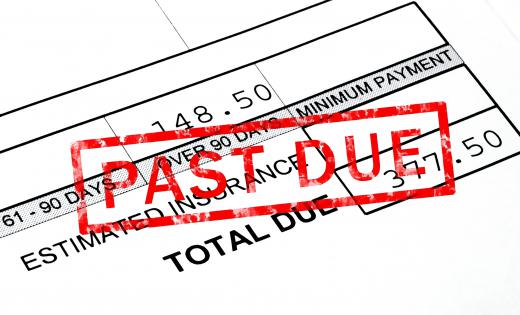A collections representative attempts to collect money that is owed to a business. This money may include past-due bills, debts owed to the company, or various other types of delinquent receivables. A collections representative may be employed by a business, where he collects only on debts owed to that business. He may also work for a general collection agency, where he attempts to collect on debts owed to a variety of different companies. Collections representatives may also be known as bill collectors or accounts receivable specialists.
Depending on where he works and the policies of that company, a collections representative interacts with consumers through various means. He may attempt to contact debtors using the telephone, or simply through the mail. Those who have access to the customer's email account can attempt to contact him through this method. Others may be forced to approached the customer in person at his home or business.

Much of the work of the collections representative focuses on tracking down people who owe money. These debtors may be deliberately trying to dodge the debt, or simply not have the money to pay, even though they would like to. Bill collectors often contact friends and family members of the account holder in an effort to find current contact information. They may also rely on resources such as the post office, credit bureaus, and public records to find a customer's address or phone number. Once the collections representative has secured this information, he uses it to attempt to make contact with the customer.
If the collections representative is able to contact the debtor, he informs him of the money owed and asks when payment can be expected. He may assist the account holder with working out a payment plan to settle the debt, or even accepting a lower amount than what is owed in order to clear the debt. If the customer believes that the debt has been settled or the information is incorrect, the collections representative can help him clear up any questions or problems he may have. Bill collection agents also correspond with major credit bureaus to update them on debts that have been paid off, or that may be erroneous.
While the work of the collections representative may seem fairly mundane, these professionals face a great deal of scrutiny and complaints. They often deal with disgruntled customers, and face lots of dead ends in their search for an account holder. Some earn a percentage of all the money they collect, which can lead to unpredictable pay during difficult months.
